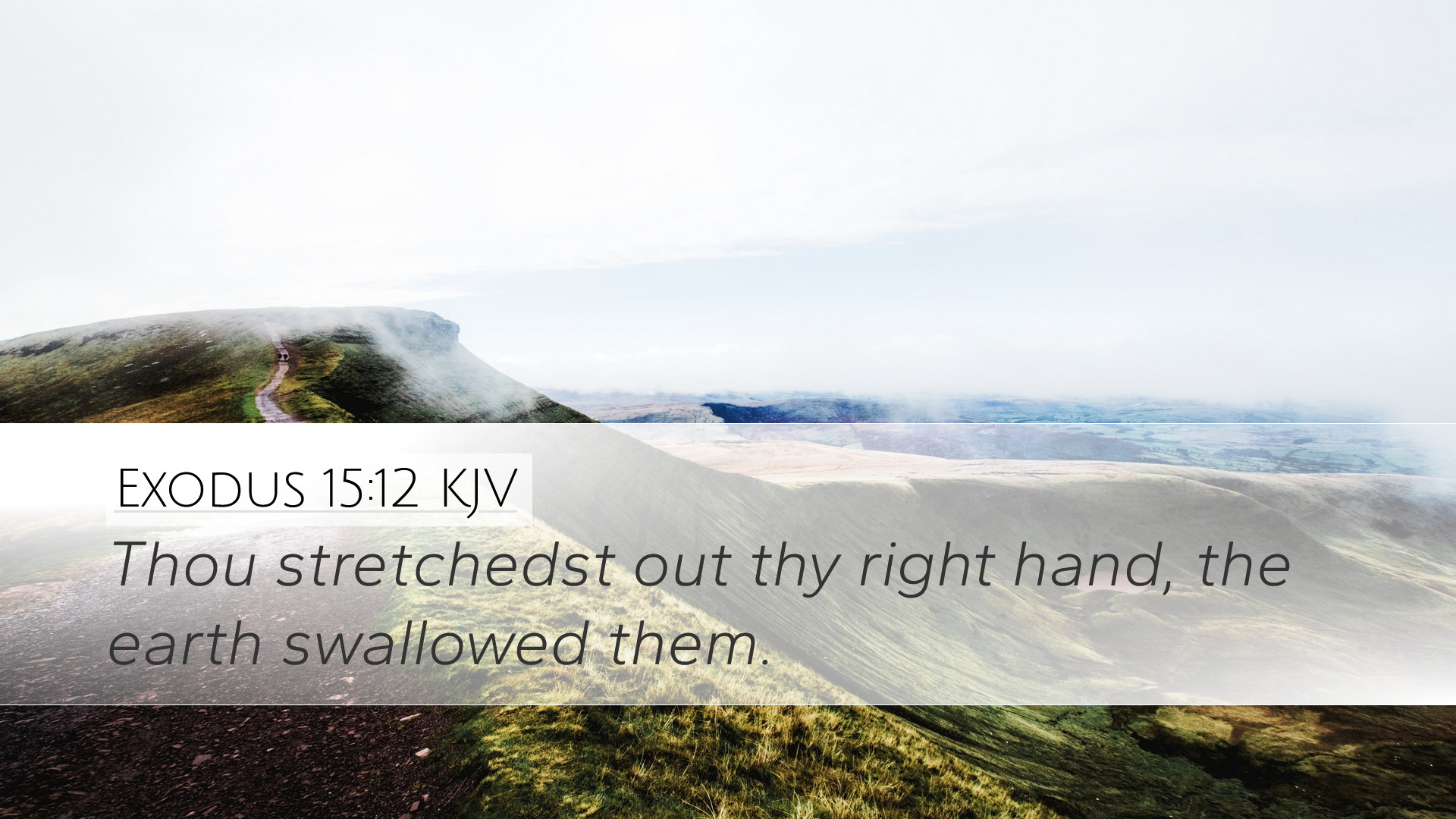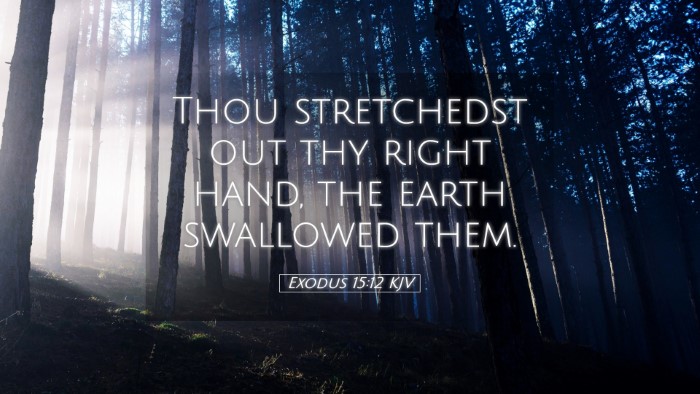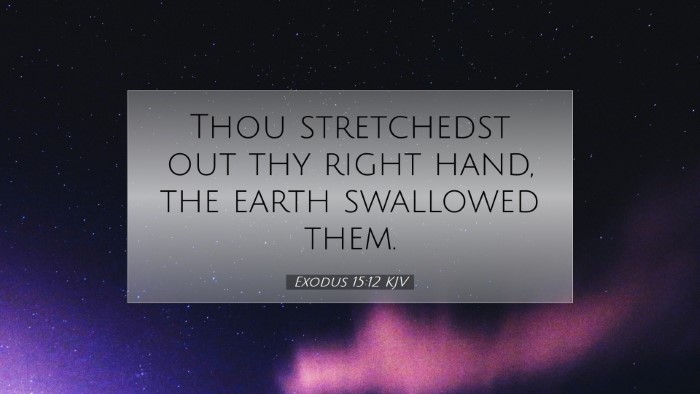Commentary on Exodus 15:12
Exodus 15:12 reads: "You stretched out Your right hand; The earth swallowed them."
Introduction
This verse derives from a powerful hymn of praise, sung by Moses and the children of Israel after the crossing of the Red Sea. It reflects on God’s magnificent power and deliverance, marking a significant moment in Israel's redemption history.
Theological Significance
Exodus 15:12 emphasizes God's might as a divine warrior. The imagery of His "stretched out" hand symbolizes His intervention and authority over creation. The swallowing of the Egyptians by the earth illustrates the totality of their defeat and the assurance of Israel's safety.
Moses' Song of Deliverance
This verse forms a part of what is often called the "Song of Moses." It captures the collective joy and relief of the Israelites after an intense trial. The song is not merely a recount of events; it serves as a doctrinal foundation for the Israelites' faith in God.
Insights from Public Domain Commentaries
Matthew Henry
Henry notes that the whole chapter serves as a celebration of God’s deliverance, where each line opens the heart to the recognition of God’s omnipotence. In verse 12, the metaphor of the earth swallowing the Egyptians highlights God's awesome judicial power. Henry views this as a striking reminder of God’s justice against those who oppose Him.
Albert Barnes
Barnes interprets the "right hand" as a representation of strength and power, often used throughout scripture to denote God’s active intervention. The phrase "the earth swallowed them" suggests a decisive end to Pharaoh's army, illustrating God's capability to protect His people through divine means. Barnes emphasizes the assurance this brings to the faithful, reminding them that God fights their battles.
Adam Clarke
Clarke elaborates on the context of verse 12 by indicating that the swallowing of the Egyptians did not merely signify physical destruction but also represented the spiritual and moral victory of God over sin and oppression. He suggests that this verse encapsulates the ultimate triumph of good over evil, an echo of the future redemption through Christ.
Literary Devices and Themes
The verse employs vivid imagery and strong metaphors to convey profound truths. The act of stretching God’s hand can be interpreted as a definitive act of creation and deliverance, showcasing His sovereignty over nature itself.
Divine Sovereignty
In this passage, the sovereignty of God is unmistakable; He commands creation at His will. This serves as a crucial reminder for believers of God's ongoing rule in their lives.
Judgment and Grace
The contrasting figures of Israel’s deliverance and Egypt’s destruction portray a dual theme of judgment against those who rebel and grace towards those who obey. This duality invites reflection on personal and communal responses to God’s commandments.
Application for Modern Believers
Exodus 15:12 serves as an eternal reminder of God's faithfulness in tumultuous circumstances. Believers today are encouraged to reflect on the victories God has achieved in their lives, reminding them that deliverance often follows the trials of faith.
Encouragement in Trials
When facing adversities, this verse reassures believers of God’s active presence. It calls for an attitude of faith and trust, knowing that God has the power to intervene and bring about salvation, just as He did for Israel.
Call to Worship
Furthermore, the verse is a call to worship. The response of praise is important to foster a spirit of gratitude towards God for His mighty acts. Believers are invited to share testimonies of God’s faithfulness as a means to encourage one another in their spiritual journeys.
Conclusion
In summary, Exodus 15:12 encapsulates key theological truths concerning God's sovereignty, justice, and grace. The reflections drawn from this verse are not only relevant to the historical context of Israel but also hold lasting implications for modern believers as they navigate their spiritual lives.


